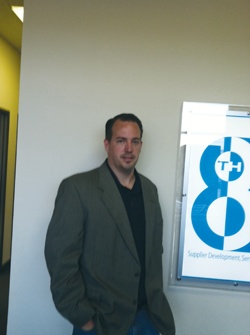Overcoming Entrepreneurial Extremism (Opinion)
by January 21, 2013 12:00 am 79 views

People have told me more than once we entrepreneurs tend to be tactical and emotional pendulums, either going 100 mph or at a total standstill, bursting with optimism or wallowing in discouragement, betting it all or sitting it out.
Nowhere does that extremism manifest itself more than during the planning stages of a new venture. Unfortunately, many businesses never reach this stage at all, but live entirely in the minds of the first type of extreme entrepreneur, the dreamer.
The dreamer dreams, but does little else. Fear, self-doubt, responsibilities, job loyalty or some variation of those keeps her from taking the first step toward turning her big ideas into the opportunity — or mistake — of a lifetime.
On the other hand is the gambler: the person prepared to bet everything to pursue his vision right now. For an entrepreneur, there seems to be a certain glory in being able to say you’ve gone “all-in” with a big idea, that you’ve done whatever it took and poured everything you had into launching your business.
The sad reality is both varieties of entrepreneurial extremists face low to nonexistent chances of success. Dreamers can’t possibly succeed at something they only dream of doing, and gamblers risk catastrophic failure that can cripple them financially and devastate their self-confidence.
For 15 years, I was the dreamer. You never could have caught me unprepared to deliver an elevator pitch on the spot about my current big idea. Yet I was paralyzed by fear and self-doubt, and used my responsibilities at work and home as excuses for doing nothing with those ideas.
In 2004, I had a job I loved with a company I’d worked for and grown with for almost 13 years, and with a growing family at home, I’d all but given up on owning my own business. But that year, I had an “Aha!” moment: I realized starting a business doesn’t require an all-or-nothing approach, that I didn’t have to choose between job and endeavor, but could in fact do both. I understood that if I was going to realize my dream, I’d have to take a different path than I had originally envisioned.
Recognizing the company I worked for wouldn’t approve of my dividing my attention, even outside of business hours, I went to work for a smaller, more entrepreneurial firm where I could devote long nights and weekends to starting my business. A year later, the business I had started was paying more than my day job. That’s when I decided to resign and devote all my time to it.
Most businesses fail within the first three years because they are undercapitalized, and thus extremely fragile. Many first-time entrepreneurs fail to consider they not only need enough cash reserves to keep the business afloat, but also enough to stay personally solvent. Too often, business owners suffocate their young business by taking out too much cash for personal expenses before the business finds its stride.
Assuming you can’t raise enough money from family, friends and fools to keep from starving to death during those early days, consider starting what might for a time be only a “hobby business” while you’re still gainfully employed. This allows you to grow your startup steadily.
While not quite so glorious as staking everything on a daring venture, a more incremental approach provides a safety net should your first attempt fail. It avoids the pitfalls of idle dreams and huge gambles, allowing an aspiring entrepreneur to pursue her vision without risking financial ruin.
Regardless of your approach, there’s no time like the present to start your first business. If you’ve squirreled away savings and can self-fund: start. If you can raise outside funding in a way that seems to make sense long term: start. And if you need to get or keep a part- or full-time job to nurture your first venture: start.
If all you do is dream, you’ll never know what might have been.
Matt Fifer is a serial entrepreneur, a coach to early stage startups and a founding partner with 101 Ventures, a Bentonville-based holding company that operates and invests in businesses involved in supplier education, shopper marketing and consumer product innovation. He can be reached at [email protected].
